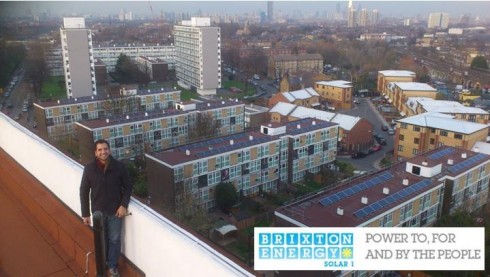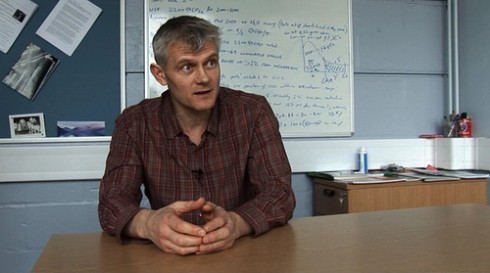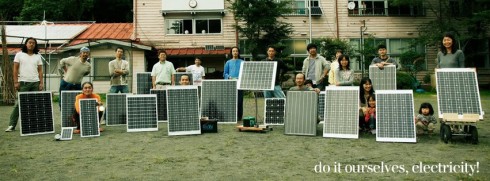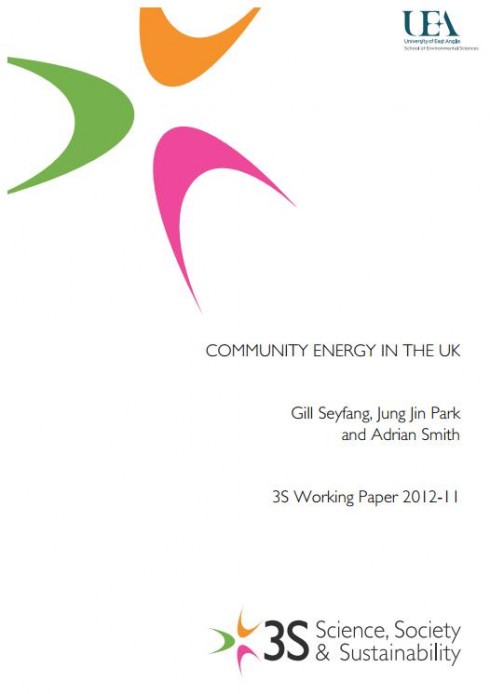5 Dec 2012

Let’s start this month’s bumper round-up (which contains some of the finest short films about Transition among many many other things) with the news that Transition Network has just been named as the winner of the highly prestigious European Economic and Social Committee’s Civil Society Prize. This is great recognition for the work of the REconomy Project and so many people in hundreds of European local communities who are engaging their local civil society in developing low carbon futures and livelihoods which promote wellbeing for all in the community. There are more than 500 Transition initiative community groups in 23 European countries (more than 1000 groups worldwide) who are working on the “transition” to a low-carbon, socially-just future.
Read more»
4 Dec 2012

Last Friday I visited Brixton in south London to visit Brixton Energy. Brixton Energy had just closed its second share launch, Brixton Energy Solar 2, which had raised £70,000. Its first project, Brixton Energy Solar 1, was the UK’s first inner-city community-owned solar power station, a 37kW solar array on the roof of Elmore House on the Loughborough Estate. The second was a 45kW system spread over the roofs of the 4 housing blocks of Styles Gardens. I joined Agamemnon Otero of Brixton Energy on the roof of a neighbouring tower block on a crisp and clear winter day, with a clear view over the solar systems that Brixton Energy had already installed (see picture above), to ask him more about the project.
Read more»
2 Nov 2012

Kevin Anderson is the Deputy Director of the UK Tyndall Centre and is an expert on greenhouse-gas emissions trajectories. He will be giving the annual Cabot Institute lecture, ‘Real Clothes for the Emperor’ on 6th November in Bristol, which has already sold out. I was hoping to be able to go and report on it for you here, but no longer can, so instead, I spoke to Kevin last week, by Skype. I am very grateful for his time, and for a powerful, honest and thought-provoking interview.
Could you share with us your analysis of where you think we find ourselves in terms of climate change and what’s our current trajectory if we carry on as we are?
In terms of the language around climate change, I get the impression that there’s still a widely held view that we can probably hold to avoiding dangerous climate change characterised by this almost magical 2°C rise in global mean surface temperature. This is the target that we have established in Copenhagen and then re-iterated in Cancun and to which most nations of the world have now signed up to; I think the rhetoric that we should not exceed this 2°C rise is still there.
Read more»
30 Oct 2012

Let’s start this month in Japan, and this wonderful article that appeared on Our World 2.0 called Transition Town Fujino goes for local energy independence. It included the gem that “as of July 2012, one transition town starts up every week”, and also this beautiful paragraph:
“Transition Towns in Japan identify themselves with the initials “TT”, which also stand for the Japanese words tanoshiku and tsunagaru, meaning “having fun” and “networking”. True to these words, people involved in Transition Fujino work towards transition while making it a point to enjoy life and avoid overworking. A resilient, secure and happy way of life is reinforced by the warm connections between local people that are nurtured by the Transition Town movement”.
A beautiful article, and well worth the read. It was, in effect, an update to a piece that appeared on the same site last year which asked Rebuilding after the tsunami: eco- or transition towns?
Read more»
17 Oct 2012
 In the context of the fascinating week of posts looking discussing Transition Network over at the Social Reporters’ blog, it was fascinating to read an important new study by Gill Seyfang, Jung Jin Park and Adrian Smith from University of East Anglia about community energy. ‘Community Energy in the UK’ is the first independent UK-wide survey of community energy projects (you can download it here). One of the most interesting things to emerge from the paper is the role Transition Network plays in the field, in spite of being a very small organisation, and it offers some insights into why that might be.
In the context of the fascinating week of posts looking discussing Transition Network over at the Social Reporters’ blog, it was fascinating to read an important new study by Gill Seyfang, Jung Jin Park and Adrian Smith from University of East Anglia about community energy. ‘Community Energy in the UK’ is the first independent UK-wide survey of community energy projects (you can download it here). One of the most interesting things to emerge from the paper is the role Transition Network plays in the field, in spite of being a very small organisation, and it offers some insights into why that might be.
Read more»






